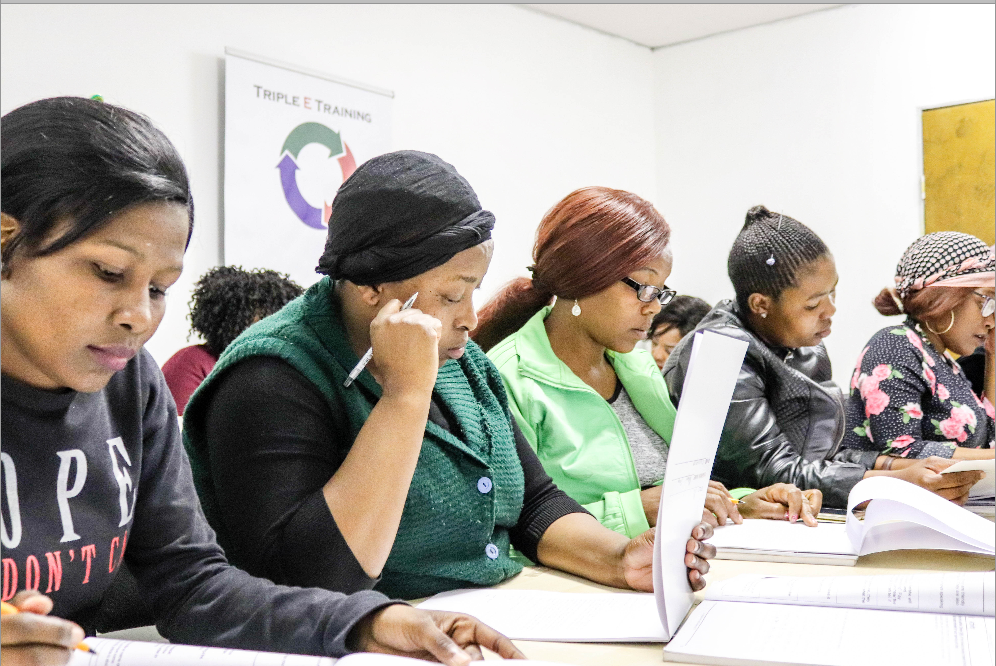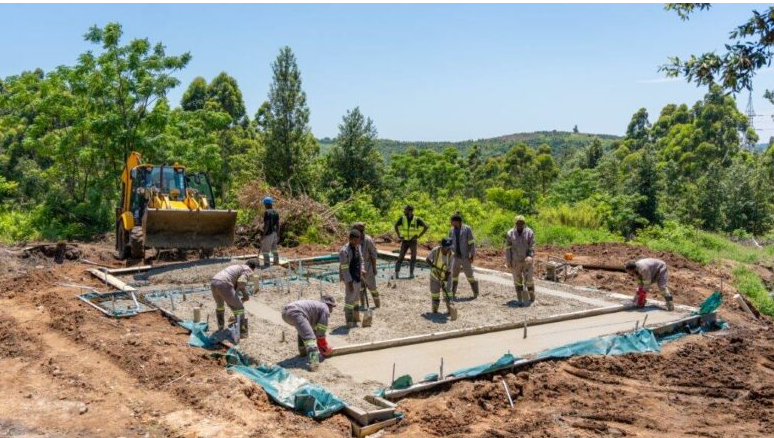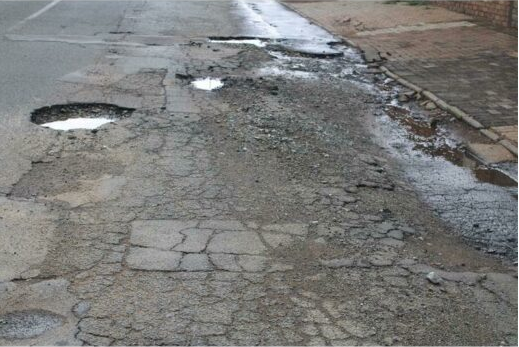Placing mining communities on path to better employment

09-06-2022
Read : 355 times
The Content Engine
Source
The overwhelming majority of mining community members who have participated in Triple E Training’s training programmes have completed all four levels of their adult basic education and training (ABET). It is the high progress rate of the company’s learners that continues to set it aside from other providers of training to mining communities. This demonstrates the relevance of the company’s training and the impact that it is having on mining communities as part of the human-resource development aspect of mines’ social-labour plans (SLPs). Among the objectives of these plans is to promote employment and advance the social and economic welfare of all South Africans. This is in addition to ensuring that holders of mining or production rights contribute towards the socio-economic development of the areas in which they operate, as well those from which the majority of their labour is sourced.
Right from the outset, the leading accredited training provider works to ensure wide acceptance of its training programmes in communities where it operates on behalf of leading mining and quarrying companies. The correct individuals are selected to undergo training; they are placed at the appropriate ABET level so that they are able to cope with or are stimulated by the course content; and they understand the relevance of the training. These are all critical to ensuring community buy-in.
Triple E Training already starts liaising with community leaders before the training commences. They are also encouraged to participate in every facet of the planning. This includes when selecting a convenient and suitable location for training to reduce transport costs for learners. It also needs to provide an environment for learning. As far as possible, services to support the instruction are also procured from small businesses in the community. In this way, the training provider maximises the socio-economic impact of its training.
“Mines consult with affected communities when they compile their SLPs to acquire mining rights. In doing so, they ensure that their upliftment projects are closely aligned to the needs of the communities that are located within their operational footprint and from where they source their labour. A similar rapport needs to be established between affected communities and mines’ training providers, which are responsible for implementing the human-resource development obligation enshrined in SLPs. Bear in mind that each individual mining community has its own unique needs when it comes to training. These can only be realised when training providers work closely with all relevant representatives and leaders of a community,” Marco Maree, Expert Developer and Training Advisor of Triple E Training, says. Triple E Training is a leading provider of ABET to the mining industry for community and workplace training.
The company’s ABET programmes are having an impact on the country’s stubbornly high illiteracy rate. A total of 3,7-million South African adults are still illiterate, with women continuing to fare worse than men, more than 20 years after democracy. Worryingly, the vast majority of these South Africans are of working age. This high illiteracy rate has a significant negative impact on the economy. Both microeconomic and macroeconomic estimates suggest that with a more typical level of school performance, South Africa’s gross-domestic product would be up to 30% higher than, at present. The growing disparity between skills is also fuelling rising inequality in the country.
Illiteracy is especially high in the rural areas, which are generally remote and relatively underdeveloped. Schools in these areas, therefore, lack physical resources and basic infrastructure, such as water, roads, transport, electricity, as well as information and communications technology infrastructure. This is contributing to the underperformance and high drop-out rate of learners. In many ways, these areas epitomise “inequality of opportunity”. Race, gender, where individuals are born and raised, as well as where they and their parents went to school influence labour market participation. Labour market participation, in turn, is also a major driver of inequality, with many adults in rural areas struggling to find or retain employment. This is because they lack even the most basic skills that are needed to participate in a modern economy that is increasingly harnessing sophisticated technologies to improve productivity, efficiency, accuracy and safety.
After completing the company’s ABET, individuals are equipped with workplace literacy skills which provide them with a greater chance of securing employment on a mine or other industries. These are among the benefits of the training that need to be communicated to mining communities ahead of ABET and to those selected to participate after they have undergone a placement assessment. The company’s placement assessments ensure that the candidates selected for training are placed at the correct ABET level. Meanwhile, an on-site awareness campaign motivates participants to want to succeed in acquiring basic literacy and numeracy skills. It is usually undertaken by one of the company’s training facilitators.
Triple E Training’s facilitators are skilled and experienced working with community members. This enables them to also foster trust between the community and training provider. Moreover, because they are familiar with mining communities, they are able to meet recruitment targets for ABET projects within a very short timeframe.
“While the mining industry continues to invest in quality ABET, more needs to be done to break the back of illiteracy in the country and place individuals on a path to better employment and improved socio-economic status,” Maree concludes.
For more information contact:
David Poggiolini
david@thecontentengine.co.za
Debbie Poggiolini
debbie@thecontentengine.co.za
Recent News
Here are recent news articles from the Building and Construction Industry.
Have you signed up for your free copy yet?









